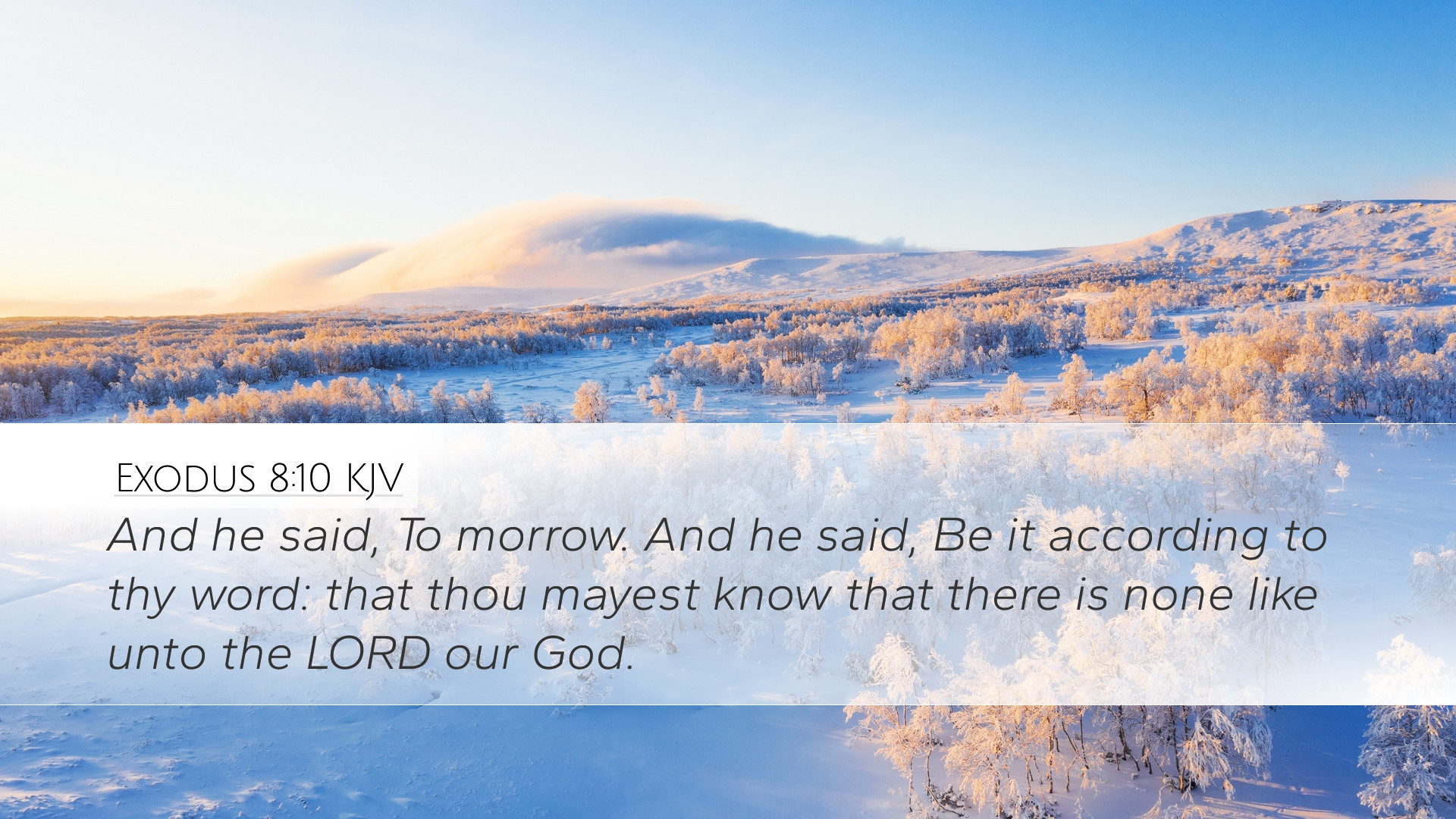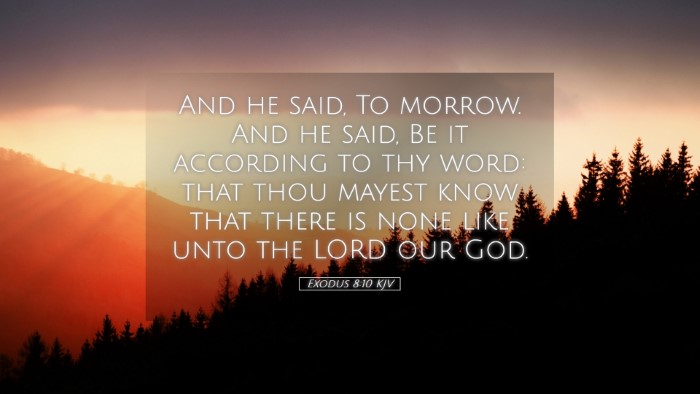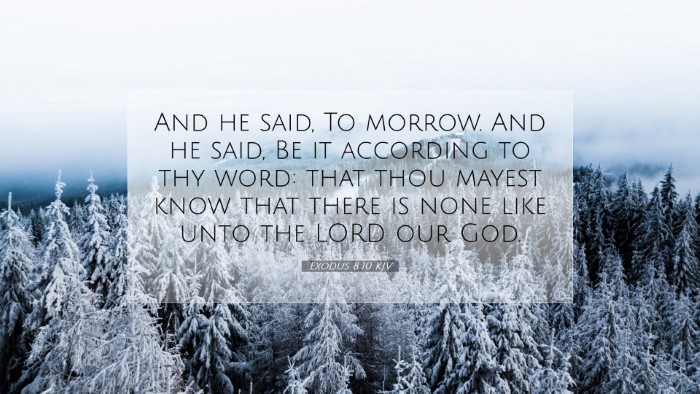Commentary on Exodus 8:10
Verse Context: Exodus 8:10 states, “And he said, To morrow. And he said, Be it according to thy word: that thou mayest know that there is none like unto the LORD our God.” This verse is situated within the narrative of the plagues of Egypt, specifically focusing on the plague of frogs.
Summary of Key Points
- Pharaoh's Request: Pharaoh, in his distress, asks Moses to pray for the removal of the frogs, demonstrating the interplay between human authority and divine sovereignty.
- The Timing of God's Mercy: Moses’ response, indicating a delay, shows the power of prophecy while highlighting God's timing in delivering His people.
- God's Sovereignty: The proclamation “that thou mayest know that there is none like unto the LORD our God” underscores the unique and unmatched nature of God, in contrast to the Egyptian deities.
Commentary Insights
Matthew Henry’s Commentary
Matthew Henry reflects on the character of Pharaoh during this episode. He emphasizes that Pharaoh's plea is both a sign of desperation and an indication of the Pharaoh’s wavering heart. Although Pharaoh requests Moses to entreat the LORD for relief, his heart remains hardened, illustrating a common pattern found throughout the narrative of Exodus.
Henry notes, “Pharaoh was willing to be rid of the inconvenience of the frogs, but his request did not stem from a sincere desire to repent or to acknowledge God’s sovereignty.” This highlights the idea that relief from suffering does not always equate to genuine repentance.
Albert Barnes’ Commentary
Albert Barnes provides a view on the implications of Moses’ answer regarding the timing of the frogs’ removal. He points out that by choosing the next day for the frogs to be removed, Moses ensures that the Egyptians would realize the power of God in the timing of events.
Barnes writes, “This was not a mere act of courtesy; it was a divine declaration meant to strengthen the faith of the Israelites and to confirm the might of the God they served.” In this light, the timing appears to serve a dual purpose: it is both a test for Pharaoh and a reassurance for the Israelites.
Adam Clarke’s Commentary
Adam Clarke elaborates on the significance of Pharaoh’s acknowledgment of God. He interprets Pharaoh’s phrase “be it according to thy word” as a moment of helplessness and a subtle acknowledgment of Moses’ authority as a prophet of God, even though his reliance on Moses does not indicate a true conversion of heart.
Clarke highlights the important theological implication that God’s signs and wonders, while intended to compel recognition of His supremacy, often fall on hard hearts that refuse to yield. Clarke states, “This text shows that the infallibility of God’s promises is assured, even amidst human stubbornness; God’s plan shall not be thwarted.”
Theological Reflection
The passage reflects the continuous struggle between divine authority and human obstinance. Pharaoh symbolizes the human tendency to seek God’s intervention in times of crisis while refusing to fully surrender to His will. For pastors and theologians, this theme raises questions about contemporary responses to God’s intervention in our lives.
This incident teaches congregations about the importance of sincere repentance, contrasting Pharaoh's superficial requests with the deeper commitment expected from believers. It invites a personal introspection regarding our own reactions to God's call—whether we respond genuinely or merely seek relief from consequences.
Application for Today
- Understanding Authority: Just as Moses was a mediator between Egypt and God, pastors today often serve as mediators. Their role requires a balance of leading people in repentance and intercession.
- Timing and Trust: The delay in the frogs' removal teaches us that God’s timing is purposeful. Believers are called to trust in God's timing, especially when they face trials.
- The Nature of God: Recognizing God as unique and incomparable helps to solidify faith. The reminder that there is none like the LORD encourages believers to hold steadfastly to their faith amidst challenges.
Concluding Thoughts
The narrative of Exodus 8:10 provides profound lessons about human nature, divine authority, and the critical nature of sincere faith. Drawing from the insights of Matthew Henry, Albert Barnes, and Adam Clarke, believers are invited to reflect deeply on their responses to God's power and authority in their lives. The challenge is to remain humble, faithful, and diligent in recognizing the sovereignty of God—the ultimate healer and deliverer amidst adversity.


